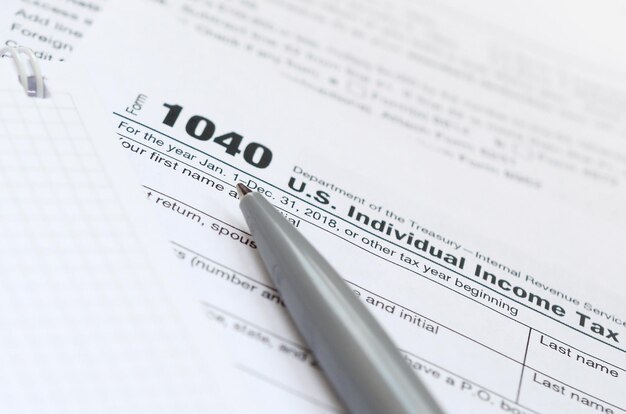Understanding Connecticut's State Income Tax: What You Need to Know
Navigating the financial landscape of any state can be daunting, and Connecticut is no exception. If you're a resident or planning to move there, understanding the intricacies of Connecticut's state income tax is crucial. This comprehensive guide aims to simplify the complex tax structure, provide meaningful insights, and offer clarity on related tax topics.
Does Connecticut Have a State Income Tax?
Yes, Connecticut does impose a state income tax on its residents. The state employs a progressive tax system, meaning that the tax rates increase with higher income brackets. For taxpayers, this system ensures that individuals with higher incomes contribute a larger percentage of their earnings compared to those with lower incomes.
The Tax Brackets
Connecticut's income tax consists of multiple brackets, with rates ranging from 3% to over 6%. Here's a quick look at the tax rates based on different income levels:
- 3%: This rate applies to the initial income bracket for single filers and married individuals filing separately, as well as married couples filing jointly and heads of households up to a specified income limit.
- 5% to 6.99%: As income levels increase, so do the percentages, capping at 6.99% for the highest income bracket.
Filing Requirements
Residents, part-year residents, and non-residents with income derived from Connecticut sources are required to file a state income tax return.
- Residents: Must file if their gross income exceeds a certain threshold during the tax year.
- Part-Year Residents: Must report all income earned while a resident of Connecticut and any income derived from Connecticut sources during the entire year.
- Non-Residents: Focus on income earned from sources within Connecticut.
Important Considerations for Connecticut Taxpayers
Understanding the nuances of Connecticut's tax system can be challenging. Here are some crucial considerations:
Deductions and Credits
Deductions: Unlike some other states, Connecticut does not allow you to deduct federal income taxes, but there are personal exemptions and various deductible expenses.
Credits: Connecticut offers several tax credits, including those for property taxes, low-income individuals, and educational expenses, among others. These credits can significantly reduce your tax liability if you qualify.
Estate and Gift Tax
Connecticut is unique in that it imposes both an estate and a gift tax, which can impact financial planning strategies for residents. These taxes are applicable to the transfer of large estates and gifts exceeding a certain threshold.
Capital Gains
Connecticut taxes capital gains as part of the income tax structure, treating them like any other income. However, paying close attention to sale dates and holding periods can help manage liabilities.
Paying Taxes
Residents can pay their taxes through various channels, including online portals, mail, or in person at designated offices. Deadlines are crucial, typically aligning with the federal tax deadline in April.
Benefits and Drawbacks of Connecticut's Tax System
Connecticut's taxation policies are a double-edged sword, offering various benefits while also imposing certain burdens.
Pros
- Progressivity: The progressive tax system is designed to ensure fairness by taxing individuals according to their income levels.
- Multiple Tax Credits: These credits provide relief to qualifying residents, making the tax burden more manageable.
- Property Tax Credit: Ideal for homeowners, this credit can reduce tax liabilities significantly.
Cons
- High Tax Rates: Compared to some other states, Connecticut's tax rates are relatively high, which can be a burden on residents, especially in higher brackets.
- Additional Taxes: The estate and gift taxes may affect financial strategies for those with substantial assets.
Practical Guidance for Connecticut Taxpayers
To navigate Connecticut's tax landscape effectively, consider these practical tips:
Keeping Accurate Records
Maintaining detailed and organized records of income, deductions, and expenses throughout the year can simplify the filing process and ensure you're maximizing deductions and credits.
Seek Professional Assistance
Given the complexities of state taxes, consulting with a tax professional can alleviate stress and ensure compliance. Professionals can offer tailored advice that aligns with your financial goals.
Utilize Online Resources
Connecticut's Department of Revenue Services offers numerous online tools and resources, including filing guides and calculators, which can facilitate a smoother tax filing experience.
Visually Distinct Summary Section
Key Takeaways for Connecticut Taxpayers
- ✔️ Progressive Tax System: Rates range from 3% to 6.99%, increasing with income levels.
- 🏡 Property Tax Credit: Beneficial for homeowners, potentially reducing tax liabilities.
- 📄 Record Keeping: Maintain detailed financial records to simplify the filing process.
- 🎓 Tax Credits: Explore available credits for education, property, and low-income assistance.
- 📊 Professional Consultation: Consider hiring a tax professional for personalized advice and compliance.
The Future of Connecticut's Tax Policies
Staying informed about potential changes in Connecticut's state tax policies is vital for every resident. Economic shifts, legislative updates, and governance changes can influence future taxation approaches. Engaging with state resources and news updates ensures you're prepared for any shifts that may impact your financial planning.
Navigating the intricacies of Connecticut's state income tax system can be overwhelming, but understanding its structure and utilizing available resources and credits can ease the burden. Whether you're a longtime resident or new to the state, informed tax planning is crucial to achieving your financial goals.

Related Topics
- Can Business Deductions Reduce Your State Personal Income Tax
- Does Alaska Have State Income Tax
- Does Arkansas Have State Income Tax
- Does California Have a State Income Tax
- Does California Have State Income Tax
- Does Colorado Have a State Income Tax
- Does Ct Have State Income Tax
- Does Delaware Have State Income Tax
- Does Fl Have State Income Tax
- Does Florida Have a State Income Tax
